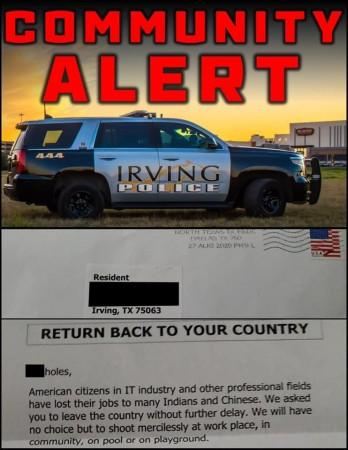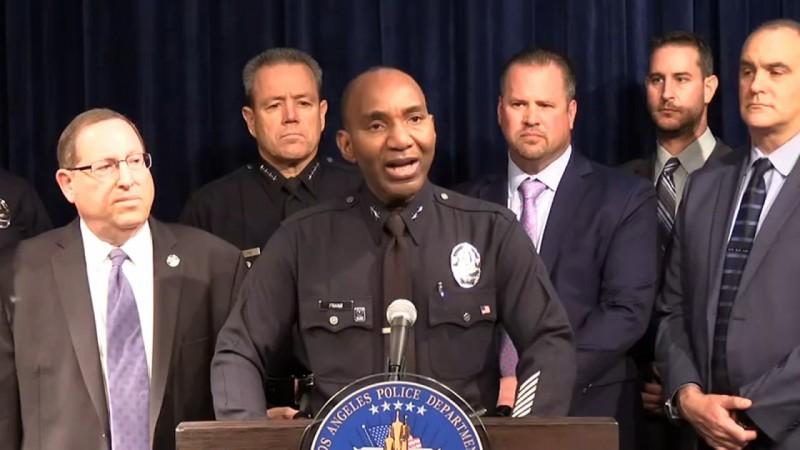While the US national news media houses are already moving on from the hostage standoff at Beth Israel, the trauma afflicted on the Colleysville community — and broader American Jewish community — will take much longer to heal. In the aftermath of that tragic afternoon, in an increasingly polarized society, the role of both interfaith dialogue as well as the role of federal policymakers deserves greater attention.
Indeed, in many circles — particularly on the internet — there is renewed division between the Muslim and Jewish community. Furthermore, specific votes by the Senate are necessary. Islamist extremists in the United States, Great Britain and beyond almost immediately praised the actions and motives of the hostage taker.
Similarly, white supremacists almost immediately expressed both Holocaust denying bigotry and vile Islamophobic tropes on platforms such as Telegram and 4chan. Local, state and federal law enforcement deserve incredible praise for their heroic efforts last Saturday. Across the United States, they are combatting a spike in hate crimes. In 2019, the FBI reported 7,103 such incidents involving 8,552 victims.
![Hate crime in US [Representational Image] Hate crime in US](https://data1.ibtimes.co.in/en/full/636871/hate-crime-us.jpg?h=450&l=50&t=40)
Fortunately, the House of Representatives version of the Build Back Better legislation includes a $100 million boost for the Nonprofit Security Grant Program administered by the Federal Emergency Management Agency. These critical grants assist in security enhancements for non-profits and houses of worship. Once passed, total funding nationwide would be $280 million. While the future of the BBB remains unclear, swift consideration of this important program — that would benefit not only synagogues – is urgently necessary.
Unfortunately, while elected officials prepared statements to express "thoughts and prayers", the US Senate has yet to confirm Dr. Deborah Lipstadt as the State Department's Special Envoy to Monitor and Combat Antisemitism. This important nomination is largely held up by Senator Ron Johnson. His constituents know where religiously motivated hate can lead. Less than a decade ago the world witnessed a deranged gunman attack a Sikh Temple in Oak Creek, Wisconsin.
Join hands to fight hate crime
Antisemitism and religiously motivated hate crimes date back millennia. However, 21st Century challenges affect American Jews and Muslims alike and require fresh thinking. The Jewish Theological Seminary in partnership with the Islamic Society of North America and the Hartford Seminary have worked diligently to advance interfaith engagement and dialogue. The goal was not feel-good talk, but to build a roadmap of actions which lead to trust in each respective community. Politics took a backstage to thoughtful deliberations. By all metrics this model was successful.
Last month, we reflected on the life and legacy of Dr. Martin Luther King, Jr. One year to the day before his life was tragically cut short, he delivered a sermon at Riverside Church in Manhattan. "America, the richest and most powerful nation in the world, can well lead the way in this revolution of values...There is nothing to keep us from molding a recalcitrant status quo with bruised hands until we have fashioned it into a brotherhood."

It is all too easy to focus on differences and on the perpetrators of evil who exacerbate these differences. This is often at the expense of the much rarer task of celebrating diverse voices who stand up and speak out and bring us together.
It is now eight decades since the Holocaust began. On January 27th, the world marked International Holocaust Remembrance Day. This was designated by the United Nations and coincides with the liberation of the Nazi camp at Auschwitz-Birkenau. The 193 members approved the resolution by consensus — with just a bang of the gavel — by the Muslim Assembly President Abdullah Shahid. Iran was the one nation to raise concern and formally "disassociate" itself from the resolution.
Promoting tolerance
Recently, the Government of the United Arab Emirates with the assistance of their Ambassador in Washington, Youssef Al Otaiba, hosted a delegation from the United States Holocaust Memorial Museum in Abu Dhabi. This was an epic congregation. For a decade the Museum has been quietly building partnerships across Middle East and North Africa to create Arabic language educational resources and bring Holocaust education and awareness to the region. Beyond Holocaust education, the UAE is a leader in confronting hate and extremism and promoting tolerance.

As President John F. Kennedy, eloquently made clear in 1960, "We are not here to curse the darkness, but to light a candle." This mantra rings true in the Middle East as government leaders in Israel, and the Muslim world have embraced the Abraham Accords. So too American Muslim and Jewish leaders should "light a candle" and commit to unprecedented fellowship and trust building dialogue this year.
M. Osman Siddique was the first Muslim appointed as a United States Ambassador and Chief of Mission. He currently serves as a Senior Advisor to the Atlantic Council. He is the author of Leaps of Faith, An Immigrant's Odyssey of Struggle, Success and Service to His Country.Ari Mittleman is the son of a Rabbi. He is the author of Paths of the Righteous, Stories of Heroism, Humanity and Hope.










